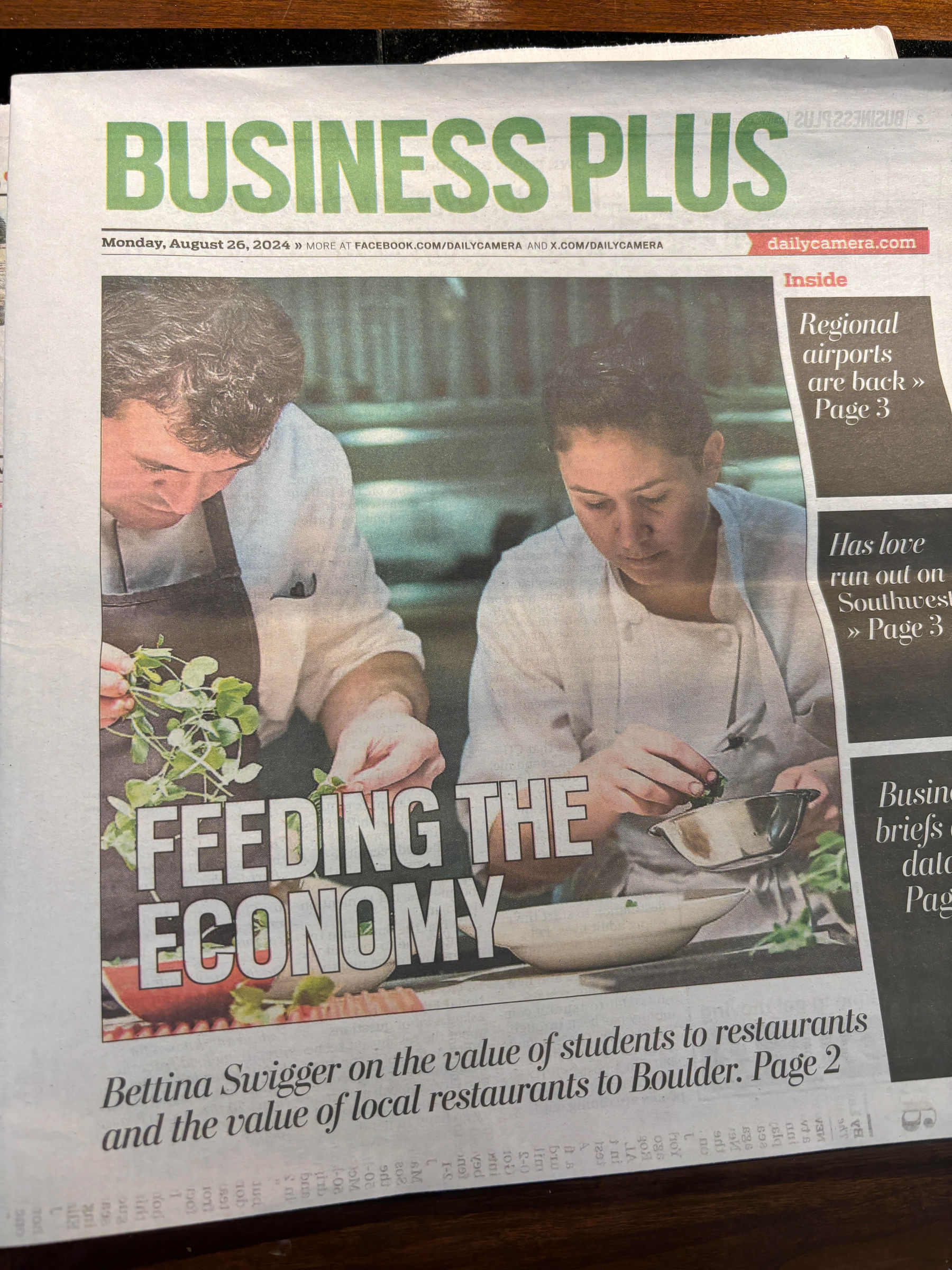
by Bettina Swigger, CEO, Downtown Boulder Partnership
The days are getting shorter, even though the heat doesn’t show any signs of slowing. But if you’ve driven past campus, set foot in a grocery store, or visited the Pearl Street Mall, you know it’s official: summer is over because the students are ba-a-ck. The reality sunk in last week when I started seeing customer service teams working in teams of two at my favorite restaurants and coffee shops. At first, I thought perhaps I had developed a reputation as a bad customer, and management suggested I required supervision. This seemed off, given my propensity for tipping well and my belief in good customer service karma after years of working in the restaurant industry. But then it clicked: it’s training season, and these are new employees, ready to learn, both in and out of the classroom.
It’s no secret that CU has an economic, social, and cultural impact on our community, as consumers, neighbors, and workers. Students bring youthful, fresh, energy, and diverse perspectives, and they have big fat crushes on Boulder; after all, they chose our city as as their destination to start their young adult lives. Let’s hope that as new employees, they can also bring some good vibes and new energy into our restaurants. Our restaurant community has been through the wringer. The economic environment remains shaky in a post-COVID shutdown world, where people are dining out less, food and supply costs are rising, and delivery services are supplanting full-service dining. Tensions have run high this month, as a contentious minimum wage increase discussion came before Boulder City Council in a study session last week, and two unplanned power outages (one on Downtown’s West End and The Hill on Saturday, August 3 and one on The Hill on Friday, August 16) caused revenue losses and much vexation and confusion.
Over the past few decades, Boulder’s restauranteurs have built our solid reputation as a foodie destination. 30 years ago, Jax showed us that being landlocked is no excuse for missing out on delicious seafood. 20 years ago, Frasca arrived on the scene and elevated our expectations to ultimately earn Boulder’s first Michelin star. And along the way, stalwarts like Salt, Zoe Ma Ma, Pasta Jays, Mountain Sun, and others have survived while chain restaurants pulled out (Chipotle, who?). These local institutions have in turn helped recruit retailers, residents, startups, and all other kinds of businesses, not to mention tourism.
When the Sundance Institute came to town at the beginning of the month scoping Boulder as a finalist city for their International Film Festival, they asked a lot of questions about the restaurant scene. Why? A vibrant restaurant scene is a key component of a city's appeal, and great culture and great hospitality go hand in hand.
A thriving local restaurant community contributes directly to the local economy by creating jobs and circulating money within the community. Restaurants often source ingredients from local suppliers, which further boosts the local economy and supports regional agriculture. Many local restaurants are small, independently owned businesses. Supporting them helps foster entrepreneurship and encourages the growth of other small businesses in the area.
Local eateries are landmarks in a community, contributing to its unique identity. They serve as gathering places where people from all walks of life come together, fostering a sense of belonging and community pride. If you haven’t been out to eat in a while, come downtown and support a local restaurant, and make sure you tip the future leaders well as they learn the ropes in our thriving downtown. Good luck to all, and to my fellow downtown diners, be kind to the trainees!
-Bettina Swigger, CEO of Downtown Boulder Partnership, is deeply interested in public space and the intersection of creativity, commerce, and community.
This article was published in the Daily Camera on Monday, August 26, 2024
Tagged: Downtown Boulder CEO Update